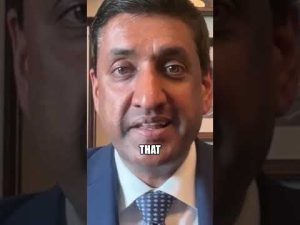In the realm of modern journalism, a particularly troubling phenomenon has emerged that demands attention: the Gilman Amnesia effect. Coined by the author Michael Kryon, this concept highlights a frequent and frustrating experience for those who consume news. Imagine opening a publication to read an article about a topic you know inside and out, only to find the journalist has tangled the facts so severely that the piece resembles a game of twisted telephone. The result? A misrepresentation so egregious it flips truths upside down, creating a narrative that is the complete opposite of reality.
One of the more comical aspects of the Gilman Amnesia effect is that readers often finish such an article with a sense of disbelief mixed with a chuckle. These pieces are akin to stories claiming that wet streets are proof that it rained rather than recognizing that it was indeed the rain that caused the wet streets. This unfortunate tendency isn’t just a minor quirk of the media; it has significant ramifications. When readers then turn the page to national and international news, they often do so with a dangerous tendency to suspend their critical faculties, as if the shoddy reporting has somehow seeped away with the ink.
What’s perplexing is the cognitive dissonance that allows the average consumer to compartmentalize information. If someone in their personal life consistently exaggerates or misleads, a reasonable individual learns to view that person’s words with skepticism. Yet, for some reason, people seem to put a different lens on the reporting they encounter in the news. One might read an absurdly inaccurate account of a local election and then dive headfirst into international affairs as though the same dubious facts don’t apply. This selective memory leads to a society rife with misinformation and uncritical acceptance of narratives promoted by media outlets, often skewed to align with leftist ideologies.
Consider the implications of this effect on public discourse. If a significant portion of the populace shuts down their critical thinking abilities because they’re convinced that a newspaper must offer reliable information, we’re setting ourselves up for a crisis in informed decision-making. Common sense suggests that when skewed narratives gain traction, they begin to warp public perception, influencing policies and elections without a solid foundation. The Gilman Amnesia effect contributes to a cycle of reinforcement, where inaccurate information breeds more inaccuracies, confusing citizens and skewing democratic processes.
As this phenomenon continues to perpetuate, it becomes clearer why conservative voices increasingly push back against mainstream narratives. The constant drumbeat of misinformation has consequences that extend beyond mere inaccuracies; it creates an echo chamber where only select viewpoints are amplified. The remedy is not simply to criticize the media, but rather to cultivate a culture of critical engagement. By encouraging readers to question what they consume and recognize the Gilman Amnesia effect at play, we can foster a more discerning and informed electorate.
In conclusion, it is essential for individuals to reflect on what they read, to pose questions rather than passively absorb information. Society must foster a healthy skepticism toward all information, especially when it comes from outlets that have shown a pattern of inaccuracies. The only way to combat the insidious nature of the Gilman Amnesia effect is through awareness and diligence. After all, if one knows that rain is what makes streets wet, it’s crucial to remain vigilant and recognize when some journalists are simply misplacing the blame.







